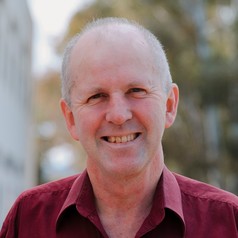Ahead of this week’s budget, Treasurer Jim Chalmers says he wants Australians to prepare for a serious conversation about how to pay for the services we need.
We’ve developed a proposal to make that conversation more real.
Australians pay a lot of tax (although less than in some other countries) and we pay it in a lot of ways: through income tax, the goods and services tax, excise duties, stamp duties, council rates, and capital gains tax.
Most of us accept tax, if grudgingly. But many aren’t happy with how it is spent.
Enter TaxTrack – our hypothetical proposal for democratising taxation, details of which are to be published in the Australasian Parliamentary Review.
Our idea is that Australians who want a greater say in where their taxes go could be given a TaxTrack number, which would trace those dollars and direct them only to places they wanted them to go.
An app could display the invoices a user’s taxes had paid. Shutterstock
If they wanted, they could view the invoices their contributions had helped pay, and they could specify which invoices their contributions should not pay – perhaps by prohibiting the spending of their money on things such as military ammunition, or specifying that a certain proportion was directed to healthcare.
Governments would have to work with those instructions, cutting spending in areas that lacked support and boosting it in areas for which there was overwhelming support.
It would give taxpayers a lot of power, and a good deal more engagement.
The idea borrows from previous experiments with “participatory budgeting”, including one in the Brazilian city of Porto Alegre in the 1980s.
But whereas these experiments gathered citizens together to discuss the outputs of budgets (as Chalmers is proposing) ours would empower citizens at the input stage, using technology that has only recently become available.
What are the drawbacks?
We foresee problems. One is that necessary but unpopular activities might not be funded. For instance, administration, and tax collection itself, tend to be unpopular and could face a squeeze.
Taxpayers might also decide to look after themselves. The young might strip pensions from the old. The old might cut funding that goes to the young.
Public forums and deliberative citizens’ panels would likely be needed to work through the contradictions.
But the forums, and the agency the system would give to citizens, would connect them more strongly to government and help combat the political disenchantment seen in the United States and elsewhere.
At this stage it’s only an idea, albeit one that has become technologically feasible. It mightn’t yet be politically feasible. But things are moving in that direction.
Given Chalmers’ exhortation to the Australian people to have a “serious conversation” about how to fund public services, our proposal (or something like it) would offer people a practical way to do it.
Jean-Baptiste Colbert, finance minister to Louis XIV, famously declared the art of taxation “consists in so plucking the goose as to obtain the largest possible amount of feathers with the smallest possible amount of hissing”.
It might be time for the goose to decide how its feathers are used.



 Gold Prices Slide Below $5,000 as Strong Dollar and Central Bank Outlook Weigh on Metals
Gold Prices Slide Below $5,000 as Strong Dollar and Central Bank Outlook Weigh on Metals  Trump Endorses Japan’s Sanae Takaichi Ahead of Crucial Election Amid Market and China Tensions
Trump Endorses Japan’s Sanae Takaichi Ahead of Crucial Election Amid Market and China Tensions  South Africa Eyes ECB Repo Lines as Inflation Eases and Rate Cuts Loom
South Africa Eyes ECB Repo Lines as Inflation Eases and Rate Cuts Loom  Russian Stocks End Mixed as MOEX Index Closes Flat Amid Commodity Strength
Russian Stocks End Mixed as MOEX Index Closes Flat Amid Commodity Strength  Japanese Pharmaceutical Stocks Slide as TrumpRx.gov Launch Sparks Market Concerns
Japanese Pharmaceutical Stocks Slide as TrumpRx.gov Launch Sparks Market Concerns  Dollar Near Two-Week High as Stock Rout, AI Concerns and Global Events Drive Market Volatility
Dollar Near Two-Week High as Stock Rout, AI Concerns and Global Events Drive Market Volatility  South Korea’s Weak Won Struggles as Retail Investors Pour Money Into U.S. Stocks
South Korea’s Weak Won Struggles as Retail Investors Pour Money Into U.S. Stocks  Gold and Silver Prices Rebound After Volatile Week Triggered by Fed Nomination
Gold and Silver Prices Rebound After Volatile Week Triggered by Fed Nomination  South Korea Assures U.S. on Trade Deal Commitments Amid Tariff Concerns
South Korea Assures U.S. on Trade Deal Commitments Amid Tariff Concerns  Dollar Steadies Ahead of ECB and BoE Decisions as Markets Turn Risk-Off
Dollar Steadies Ahead of ECB and BoE Decisions as Markets Turn Risk-Off  Oil Prices Slide on US-Iran Talks, Dollar Strength and Profit-Taking Pressure
Oil Prices Slide on US-Iran Talks, Dollar Strength and Profit-Taking Pressure  Vietnam’s Trade Surplus With US Jumps as Exports Surge and China Imports Hit Record
Vietnam’s Trade Surplus With US Jumps as Exports Surge and China Imports Hit Record  India–U.S. Interim Trade Pact Cuts Auto Tariffs but Leaves Tesla Out
India–U.S. Interim Trade Pact Cuts Auto Tariffs but Leaves Tesla Out  Asian Stocks Slip as Tech Rout Deepens, Japan Steadies Ahead of Election
Asian Stocks Slip as Tech Rout Deepens, Japan Steadies Ahead of Election  China Extends Gold Buying Streak as Reserves Surge Despite Volatile Prices
China Extends Gold Buying Streak as Reserves Surge Despite Volatile Prices  Bank of Japan Signals Readiness for Near-Term Rate Hike as Inflation Nears Target
Bank of Japan Signals Readiness for Near-Term Rate Hike as Inflation Nears Target  Fed Governor Lisa Cook Warns Inflation Risks Remain as Rates Stay Steady
Fed Governor Lisa Cook Warns Inflation Risks Remain as Rates Stay Steady 




































